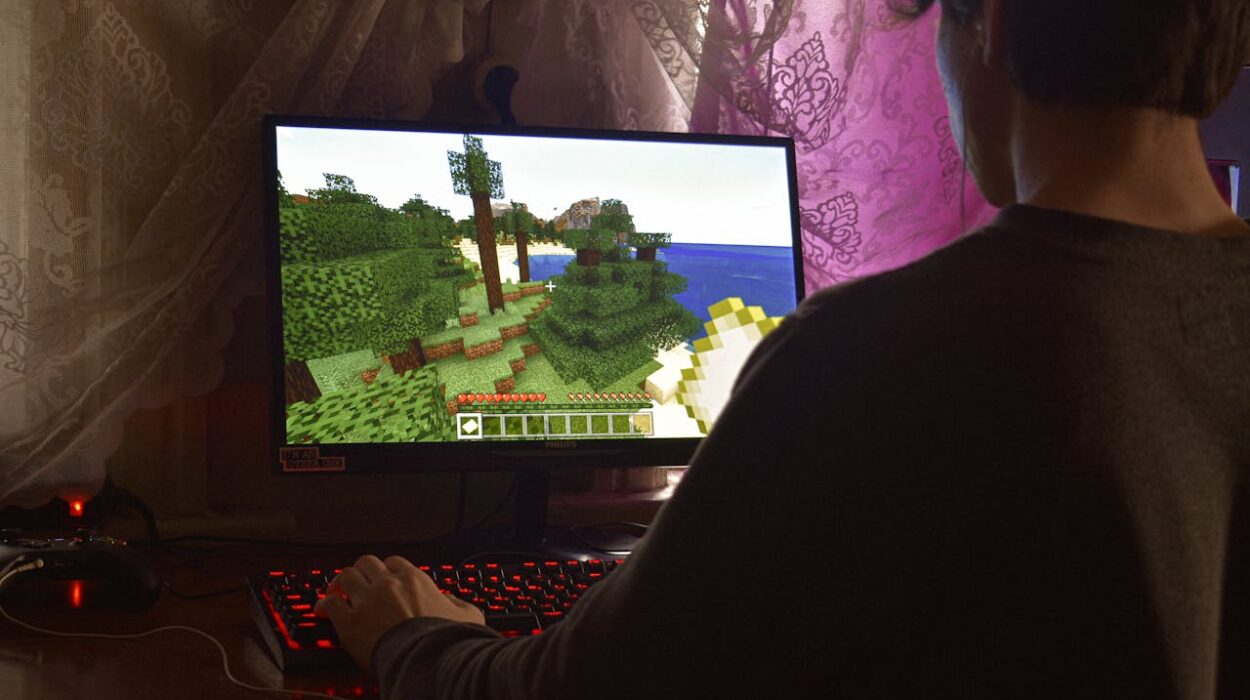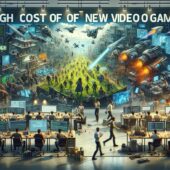Computer games are becoming more popular and interesting among modern players. Let’s have a look at the appeal of games, their major benefits, and linked challenges and concerns.
The Amazing World of Computer Games
Computer games have become an essential part of modern entertainment. They enthrall audiences of all ages around the globe. The good news is that computer games propose something for everyone from simple pixelated screens of the past to today’s photorealistic graphics and exciting virtual worlds. But why are computer games so fantastic, and what makes them such a significant element of our lives?
A Journey Through Time
The history of computer games started in the mid-20th century. This is when the first games such as “Pong” and “Spacewar” appeared. These uncomplicated creations paved the way for a revolution in gaming.
If we fast forward to the present day, we can detect that the gaming sphere is a multi-billion-dollar empire that wraps up a variety of genres, platforms, and experiences. The rapid development of technology has allowed for more complicated gameplay mechanics, intricate plot lines, and breathtaking visuals.
Nowadays, the diversity of computer games today is staggering. There are action-packed first-person shooters, complicated strategy games, life simulations, educational games, and other variants. The choices are endless. This variety guarantees that there is a game for everyone, regardless of age or interest. If you are in need of financial support for gaming gear, Austin Loans can provide the assistance you require.
The Appeal of Gaming
One of the most attractive aspects of computer games is their capability to transport players to entirely different worlds. Users can explore ancient ruins in “Tomb Raider,” battle with mythical creatures in “The Witcher,” or construct their dream city in “Cities: Skylines.” Games authorize players to step into roles and environments far removed from everyday life. This peculiarity is a powerful draw for numerous players.
What’s more, games ordinarily provide a sense of achievement and progression. Levels to conquer, puzzles to solve, and skills to master keep players engaged and motivated. The feeling of accomplishment after completing a complicated assignment or attaining a rare reward is a critical part of why people keep coming back to their best-loved games.
Gaming is no longer a solitary activity. With the development of online multiplayer games and platforms, players can connect with friends and strangers from across the globe. Various games have crafted communities where teamwork, strategy, and communication are crucial.
The Educational and Therapeutic Benefits
Aside from entertainment, computer games have likewise appeared to be valuable instruments for education and therapy. Educational games make learning fun. This is possible at the expense of including interactive elements that elevate engagement and retention. Such games as “Minecraft: Education Edition” and “CodeCombat” teach skills ranging from coding to problem-solving in an entertaining way.
Regarding therapeutic benefits, games are increasingly employed in rehabilitation and mental health treatment. For instance, virtual reality games assist patients in recovering from physical injuries. This is possible by providing engaging and controlled environments for exercises. At the same time, games with calming gameplay are ordinarily recommended for stress relief and relaxation.
Challenges and Concerns
There is no doubt that the sphere of computer games is filled with exciting possibilities. Nonetheless, it is not without its challenges. Such troubles as gaming addiction, malware, cyberbullying, and exposure to inappropriate content are concerns that players and parents must deal with. Luckily, these risks can be mitigated with the assistance of responsible gaming habits and parental controls.
The sphere likewise faces close attention regarding inclusivity and representation. Efforts are being made to craft more diverse characters and stories that reflect a more extensive range of experiences. This guarantees that games can be enjoyed by a wider audience.
Conclusion: Computer Games are Crucial in Our Lives
Computer games are much more than just a pastime. They are a cultural phenomenon, an instrument for connection, and a medium for storytelling. The games challenge our minds, stimulate creativity, and bring people together in ways few other forms of entertainment can.
The future of computer games is incredibly promising. Since technology development shows no sign of stopping, the possibilities for computer games are endless. This promises an even more exciting future for gamers everywhere.







